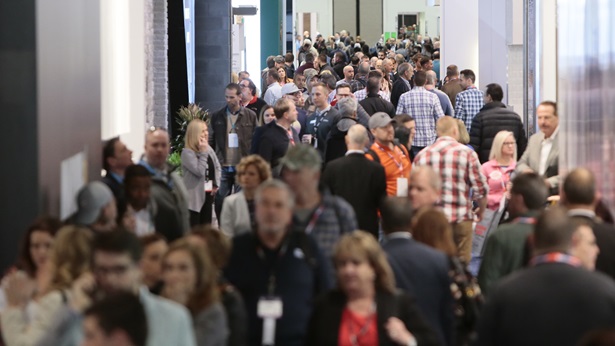Key Takeaways from 2024 International Builders’ Show
Q-and-A with Melanie Leas Von Eschen

Melanie Leas Von Eschen is the construction manager for the Town of Breckenridge in Colorado and recipient of the 2024 IBS Sustainability and Green Building Scholarship.
Melanie Leas Von Eschen, construction manager for the Town of Breckenridge, is dedicated to reliable and sustainable homes for the residents of Summit County, Colo. Currently pursuing a master’s degree in real estate and development at the University of Denver, Melanie’s educational pursuits complement her hands-on experience in residential construction. Her background in residential construction provides her with a valuable perspective, emphasizing the importance of getting things right the first time.
In a market historically focused on providing fast and inexpensive housing, Melanie’s commitment to quality and sustainability stands out. She plays a crucial role in ensuring that local residents have access to homes that are not only well-built but also environmentally friendly, affordable and designed to last. Her efforts contribute to creating a more resilient and livable community in Summit County.
What was your favorite part of attending the International Builders’ Show (IBS)?
The highlight of my experience at the 2024 International Builders’ Show was the opportunity to connect with fellow professionals who share my passion for improving and streamlining housing development. It was inspiring to be surrounded by like-minded individuals with a collective goal of advancing the industry towards greater efficiency and excellence in building.
What were your biggest takeaways from your experience at IBS?
There was the overwhelming emphasis on sustainability and the integration of cutting-edge technology within the construction sector. The event showcased a significant push towards leveraging AI [artificial intelligence] to elevate the customer experience, evident in both the exhibits and educational sessions. There was a notable trend towards adopting alternative mechanical systems like heat pumps, integrating solar panels into roof systems, and exploring innovative construction methods such as modular, panelized or hybrid approaches, all aimed at reducing waste throughout projects.
How do you plan to incorporate what you learned at IBS into your business/career?
I intend to apply lessons learned from the educational sessions to optimize pre-construction efforts in upcoming projects. There were numerous best practices acquired that will ensure thorough preparation before commencing large-scale developments. Additionally, I successfully forged connections with a roofing company and a shower enclosure company, both of which we are now actively bidding for in an ongoing development project. These networking opportunities present valuable prospects for collaboration and growth within our current and future endeavors.
Is there anything you wish you had been able to do but didn’t get a chance to?
I wish I was able to tour The New American Home; however, those were all sold out. Next time!
What advice would you give to anyone else attending IBS for the first time?
For newcomers attending the event for the first time, my advice would be to take a proactive approach and plan a schedule outlining the educational sessions and exhibits that interest you beforehand. Given the vast scale of the event, it can be overwhelming without a plan. Familiarize yourself with the event map and consider organizing your itinerary based on the halls where specific exhibits are located within the convention center. Breaking up your visit in this manner can help optimize your time and ensure you don’t miss out on any key presentations or opportunities.
What has your experience been with utilizing heat pumps in Breckenridge? Any new technology on the horizon that you heard about at IBS to make them work better in Colorado’s climate?
In our apartment projects in Breckenridge, we’ve employed heat pumps in various applications, finding the mini-split system particularly effective. This system has proven to deliver continuous and consistent heating, which is crucial in climate zone seven. Unlike larger scale heat pumps serving multiple units, the mini-split system helps mitigate condensation and operational issues we’ve encountered previously.
At the IBS, I had productive discussions with representatives from two different companies regarding their respective systems. Subsequently, we’ve had follow-up meetings to determine which system best suits our needs for an ongoing development project. As we consider options for our development projects, we prioritize selecting a system from a provider that not only offers high-quality equipment but also reliable maintenance and support services to safeguard against any potential disruptions.



